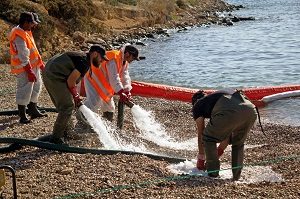
Pollution Event: A Critical Phrase
Language matters, and how a carrier defines a “pollution event” determines what circumstances will trigger coverage. Unfortunately, there isn’t a standard way the insurance industry defines “pollution event”; each carrier has its unique policy language and definitions. Even a slight change in wording can result in a dramatic change in coverage.
Be wary of ambiguous or vague definitions. Standard CGL policies commonly use general wording that creates significant gaps in coverage for your client. It’s common to see verbiage stating a “pollution event” is defined in part as “arising out of the discharge, dispersal, release or escape of smoke, vapors, soot, fumes, acids, alkalis, toxic chemicals, liquids or gases, waste materials or other irritants, contaminants….” But even non-hazardous products in a large enough quantity, spilled/released into the environment, can be considered a pollutant. A food product spilling onto a roadway or dust stirred up from a construction site are both situations that have resulted in large pollution claims. Understandably the broad and varied definitions have led to many costly legal battles.
What is a pollution exclusion?
An exclusion in an insurance policy that refers to losses caused by “pollution,” whether in solid, liquid, or gaseous form. The basic CGL policy provides very little pollution coverage, particularly in the area of cleanup or remediation. One of the most common misperceptions is that pollution events can only be caused by materials known to be hazardous. This is a mistake that can be very costly in the event of a release. Even products such as milk, beer, syrup, produce, or other consumables have been associated with hefty liability claims when their uncontrolled release into the environment has resulted in business interruption, fish kills, wetland destruction, or other natural resource damages.
To find environmental coverage that will fit the needs of the client, an agent must understand how each of the carriers applies its definitions to policy forms and endorsements or exclusions. Agents and their clients need to understand policy terminology fully, closely reading the definitions in the environmental coverage form.
Have questions about a specific insured and their coverage? Contact the environmental insurance specialists at Beacon Hill Associates.
Type: Blog
Topic: Account Management, Pollution Event